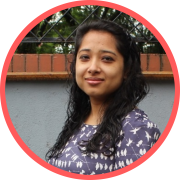It was more about rights than economics alone. To me non ministrari sed ministrare, means to fight together for the rights of the marginalized, so people can live with dignity.
Nepal has a patriarchal society and it brings many challenges for a working woman. As the country focal point for the World Bank's only project on gender based violence in South Asia, I have to bring on board many different actors from the government, private sector and NGOs, and my colleagues in Washington DC. For the project to succeed, I need to ensure that everyone has a common shared vision and is enthusiastic. Solving problems as they arise is challenging and also satisfying.
I have to interact with many male government officials, many of whom don’t see women as their equals. But you can't get disheartened and give up. Perseverance, I learned, is key for them to take you seriously. It's easy to get lost in the little details and lose sight of the big picture. One has to guard against that. No matter how much you plan, many things will go wrong. You have to work hard to overcome obstacles and keep moving forward.
One of the things that I enjoy most in life is working to grow an online magazine called The Record (recordnepal.com). The magazine covers issues that most affect the marginalized, which are often downplayed by other media. When you start something new, there will be moments of doubt. Getting a new publication like The Record on its feet requires a lot of faith in your dreams and your team. It requires conviction that you are doing the right thing that your society needs.
Erisha Suwal ’08 is a Gender Consultant with the World Bank. She is also the Chief Operations Officer of an online magazine called The Record (recordnepal.com).




